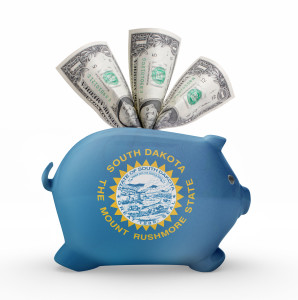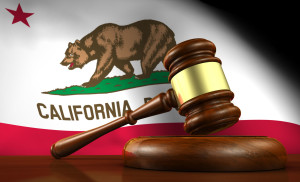Celebrating a "Sales Tax Holiday!"
 What if you could walk into a store, buy something and not have to pay sales tax because the whole state does not impose a sales tax? Believe it or not, in some states that does happen. Several states, mainly in the South and East, have these so-called “tax holidays.” These holidays are targeted at specific goods. As we discuss below, during tax holidays specific items are exempted from the tax, only in certain states, and these holidays occur only on limited days. Very little is uniform in the multistate tax world.
What if you could walk into a store, buy something and not have to pay sales tax because the whole state does not impose a sales tax? Believe it or not, in some states that does happen. Several states, mainly in the South and East, have these so-called “tax holidays.” These holidays are targeted at specific goods. As we discuss below, during tax holidays specific items are exempted from the tax, only in certain states, and these holidays occur only on limited days. Very little is uniform in the multistate tax world.
This is a hotly contested topic; the question up for debate is whether sales actually increase enough to offset the lost sales tax revenue. Researchers found that on sales tax holidays, households increase the quantities of clothing and shoes bought by over 49% and 45%, respectively to what they buy on average. However, evidence shows that these holidays simply shift the timing of these purchases and some retailers will actually raise prices during the holiday, reducing consumer savings.
How did Sales Tax Holidays begin?
Ohio and Michigan enacted the first state tax holidays in 1980, offering a tax holiday on automobile purchases. However, it was New York that, with the first tax holiday on clothing, sparked the interest in other states wanting to have state tax holidays. New York sought to combat ‘border shopping’ by administering tax holidays because New Jersey does not charge tax on clothing during the ‘back to school’ shopping season in late August. Border shopping is the concept of traveling to nearby states to take advantage of lower tax rates. Another example of multistate ‘border shopping’ is that Manhattan drivers cross the George Washington Bridge into New Jersey to buy gas at the small gas station at the end of the bridge because gas is dramatically cheaper in New Jersey.
Focus on Tennessee

This month, we travel to the south to Tennessee, the Volunteer State. Popular culture finds several well-known attractions in the state. Nashville is the country music capital of the world, and is home to the Grand Ole Opry. Memphis, in the far southwest portion of the state, is home to Elvis Presley’s Graceland and the blues clubs of Beale Street. Sun Records resides in Memphis, which is where Elvis Presley, Johnny Cash, Roy Orbison, Carl Perkins and Jerry Lee Lewis began their recording careers. The state also has an agricultural and business climate that many companies find very attractive.
Business Climate
Ranked among the top 10 destinations in the U.S., domestic and international tourism play a major role in the state’s economy. Tourists are flocking to the very popular Great Smokey Mountains National Park (the most visited state park in the U.S.), Graceland, the Ryman Auditorium, the Gaylord Opryland Resort, Lookout Mountain and the Tennessee Aquarium. With these attractions and others, tourism accounted for $17.7 billion of the state’s economy in 2014.
Other major industries include agriculture and manufacturing. 59% of the 82,000 farms supply cattle while soybeans are the major cash crop of the western portion of the state. Industrially, FedEx, AutoZone, International Paper and Volkswagen are some of the major corporations headquartered in Tennessee.
With its well-known low cost of living, Tennessee ranks ninth among states where people retire. In 2014, 3,368 people over the age of 60 migrated to Tennessee.
Tax Climate
Tennessee has a tax climate that is favorable to both your employees and your company.
A New Approach to Oregon’s State Taxes: IP28

The Oregon Legislature is proposing an interesting approach to state taxes. Initiative Petition 28, or IP28, is designed to raise more than $6 billion in revenue every two years for public education, health care and senior services. How? The petition would raise the state's business tax rate by creating a gross receipts tax on C corporations of 2.5 percent on sales above $25 million.
3 Positives to IP28
There are a few positives to this approach to state taxes.
- Analysis reveals that IP28 would reduce Oregon’s revenue from personal income taxes from the highest in the country (69 percent) to 55 percent.
- Because of increased tax revenues, it’s expected that employment in Oregon’s public sector would increase.
- Despite increasing state taxes for corporations, more than 28,000 companies would remain unaffected.
When do you Need Multistate Tax Consulting Services?
 I was speaking with a marketing consulting colleague of mine not long ago and in trying to help me hone my approach for continually connecting better with my target audience, he asked me the seemingly simple question “How does someone know when they need your services?” Of course, that should be simple! I’ve been consulting for clients in this market space for many years. And yet, the circumstances when someone may need our services can vary. So, I thought I’d dedicate some time here to give examples of when CFOs, controllers or other accounting professionals might need my multistate tax consulting services.
I was speaking with a marketing consulting colleague of mine not long ago and in trying to help me hone my approach for continually connecting better with my target audience, he asked me the seemingly simple question “How does someone know when they need your services?” Of course, that should be simple! I’ve been consulting for clients in this market space for many years. And yet, the circumstances when someone may need our services can vary. So, I thought I’d dedicate some time here to give examples of when CFOs, controllers or other accounting professionals might need my multistate tax consulting services.
Your Company is Expanding
Once your company begins doing business across state lines – whether that means setting up additional offices, hiring employees in other states or even just sending a salesforce out to call on clients in other states, or utilizing the services of independent contractors to perform installation, repairs or maintenance services – you are going to begin to trip into tax situations in other states. Read more
South Dakota and the Online Sales Tax Debate

Last month we discussed how two states, Louisiana and Alabama, are taking matters into their own hands regarding the online sales tax debate. Now another state, South Dakota, is forcing the issue.
South Dakota’s Case Regarding Online Sales Tax
If you recall from our previous posts about the online sales tax debate, states are frustrated that they can’t collect the revenue from purchases made via the internet, and retailers claim it’s too difficult to keep track of the wide variety of tax codes for every single state, county and municipality – especially for small internet retailers.
Instead of waiting for Congress to come to some sort of agreement, South Dakota has taken matters into their own hands by passing Senate Bill 106, allowing the state to collect taxes from sales made from online retailers - even if they don't have nexus within South Dakota itself. This challenges the 1992 ruling in Quill Corp. v. North Dakota, in which the U.S. Supreme Court ruled that only businesses with an actual physical presence in the state (or nexus) needed to collect sales tax from residents.Read more
Focus on Connecticut
 For this state of the month, we remain on the East Coast to focus on Connecticut. The “Nutmeg State” is the third smallest state according to land size, but its population is actually bigger than 20 other states. Connecticut’s strength lies in its versatile workforce that are skilled in the fields of financial services, bioscience, and even in entertainment.
For this state of the month, we remain on the East Coast to focus on Connecticut. The “Nutmeg State” is the third smallest state according to land size, but its population is actually bigger than 20 other states. Connecticut’s strength lies in its versatile workforce that are skilled in the fields of financial services, bioscience, and even in entertainment.
Business Climate
Connecticut’s business environment is often associated with high business costs and poor economic climate due to the slow recovery from the recession. On the contrary, the state has bright spots in which collaboration among sectors developed a solid foundation for doing business.
Among the state’s key industries are insurance services, bioscience and digital media. The state has rightfully claimed to be one of the major insurance capitals of the world. In the US alone, the state has generated the most jobs in the industry, producing over $16 billion in payroll. Aetna, Inc., The Hartford, The Travelers Companies are just a few industry leaders to call Connecticut home. Accordingly, Connecticut is also one of the healthiest states in America. It has one of the lowest obesity rates and a high number of dentists and doctors per capita.Read more
California Tax Incentives: Are They Beneficial or Not?

As California has rolled out additional tax incentives for businesses, the debate over their value has endured. Are they good for the state budget? Do they help give businesses reasons to stay? Keep reading to see two common opinions, as well as how we think California should continue.
For Tax Incentives
In a recent Lodi News-Sentinel article, Steve Hansen writes that California needs to become more business friendly and it seems legislators prefer to turn, "A blind eye." His piece calls for the state to encourage business, rather than to make it so difficult.
As he points out:
- For every 100 people in the private sector, there are now 114 people receiving a government check who are dependent on income created by large and small businesses.
- [California] has been labeled by “Chief Executive” magazine as the worst state out of 50 for doing business. California has received this “award” for the last 10 years in a row.
- [Legislators’] solutions have been to raise taxes, along with adding additional burdens, regulations and restrictions to those companies still trying to survive here. California has the highest income tax rate in the nation. Another has been to raise the minimum wage to one of the highest in the country.
Is it Sales Tax Audit Season?
CPA colleagues across the country just finished tax busy season. And hopefully they are taking a well-deserved break. But I wonder – when they come back up for air, will their clients be pinging them again because they’ve received notice of a sales tax audit?
My practice is based in California, so most of my audit controversy work is in the Golden State. And it seems to me that audit activity has been picking up. I have several audits going on right now in a variety of industries, for clients with a variety of issues. And yet, the areas in question for the State are often similar. So I thought it would be a good time to revisit some areas that companies should be aware of when maintaining their documentation, just in case it really IS audit season and you get tapped on the shoulder, ever so gently, by the state taxing authority:
Be Able to Tie Your Revenue to the Tax Return
While this seems like an obvious tip, it’s really important. When the state comes out to audit, they are trying to verify numbers reported to the State on your sales tax return. Read more
California Business' Take on the State’s Recent Legislation

You may remember that back in November, the Tax Foundation released its State Business Tax Climate Index, which ranked states based on the various tax systems companies need to work within. California businesses were less than thrilled the state ranked 48th out of the 50 states.
Because the report is intended to help lawmakers see areas where they could improve, we thought it would be interesting to take a look at ways the Golden State is both improving and declining.
Legislation California Businesses Appreciate
- The California Competes Tax Credit continues to be popular among California businesses. In fact, the state just provided various companies with $70.5 million in tax credits to expand and offer more jobs within the state's borders.
- California continues to offer credits and incentives to films and television series. Like the California Competes program, this provides tax credits to projects that relocate to the state in an effort to bring business back to Hollywood.
Focus on New Jersey
 Historians are unsure where New Jersey’s nickname the “Garden State” originated from. However, there is a certainty to New Jersey’s fast and energetic environment. The State along the east coast of the United States is accessible to major metropolises such as New York, Boston, Philadelphia, and Washington D.C. Even though the State is relatively small in size, it sits right in the middle of a huge consumer market – a perfect location for manufacturing and distribution facilities.
Historians are unsure where New Jersey’s nickname the “Garden State” originated from. However, there is a certainty to New Jersey’s fast and energetic environment. The State along the east coast of the United States is accessible to major metropolises such as New York, Boston, Philadelphia, and Washington D.C. Even though the State is relatively small in size, it sits right in the middle of a huge consumer market – a perfect location for manufacturing and distribution facilities.
Business Climate
New Jersey is a hub for sciences and manufacturing. Its location itself is an attractive destination for companies to establish distribution facilities in order to reach the nation’s east coast market. Another contributor to the State’s success is its biopharmaceuticals industry. It is the home to over 400 biotech companies (big names include Johnson & Johnson, Bristol-Myers Squibb, Merck & Co., Novartis, Novo Nordisk and Bayer). New Jersey boasts the world’s highest concentration of scientists and engineers per square mile —more than 225,000 of them statewide. In fact, the number of trained pharmaceutical, biotechnology and medical technology workers in the state has more than tripled since 2001. The reason behind this is the State’s education and labor training system.Read more





















